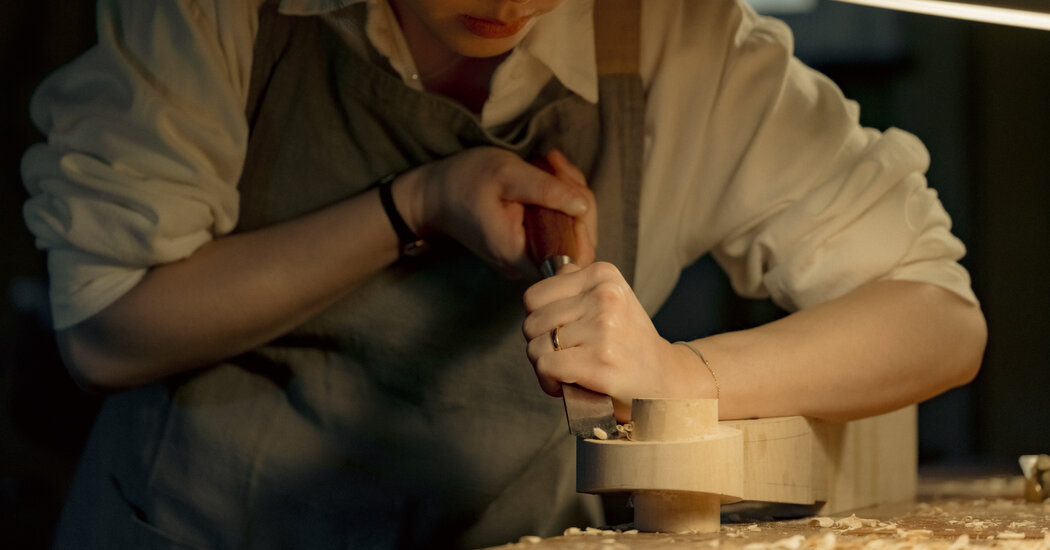
Art of Craft is a series about craftspeople whose work rises to the level of art.
When Ayoung An was 8, her parents bought her a violin. She slept with the instrument on the pillow next to her every night.
Two years later, a shop selling musical instruments opened in Pyeongtaek, South Korea, her hometown, and An became a fixture there, pelting the owner with questions. “I think I bothered him a lot,” An, now 32, said.
As a teenager, she decided she would become a violin maker. Eventually, a journey with twists and turns took her to Cremona in northern Italy — a famed hub for violin makers, including masters like Antonio Stradivari, since the 16th century. There, An, a rising star in the violin-making world with international awards under her belt, runs her own workshop.
Set on a quiet cobblestone street, An’s studio is bathed in natural light and filled with books and piles of wood chunks that must air dry for five to 10 years before becoming instruments or risk warping. She shares the two-room studio with her husband, Wangsoo Han, who’s also a violin maker.
On a recent Monday, An was hunched over a thick 20-inch piece of wood held in place by two metal clamps. Pressing her body down for leverage, she scraped the wood with a gouge, removing layers, her hands steady and firm. She was forming a curving neck called a “scroll,” one of the later steps of making a violin or cello. On this day, the violin maker was immersed on a commission for a cello, which shares a similar crafting process.






